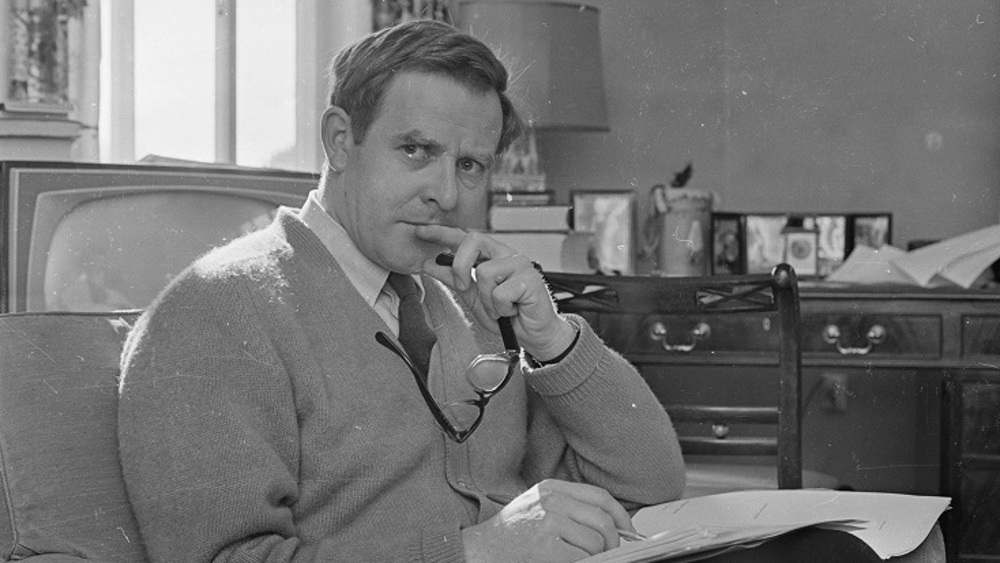MI6 Chief Richard Moore lauds spy novelist John le Carré
The chief of the Secret Intelligence Service (MI6), Richard Moore, has paid an effusive tribute to spy novelist – and former intelligence officer - John le Carré, who passed away on Saturday (December 12).
Taking to Twitter, Moore described Le Carré as a “giant of literature” who had left a “mark” on MI6.
— Richard Moore (@ChiefMI6) December 14, 2020 ">http://
Very sad to hear the news about #JohnLeCarre A giant of literature who left his mark on #MI6 through his evocative & brilliant novels. My thoughts are with his family, friends & fans. Condolences from all at the #RiverHouse. #RIP #DavidCornwell
— Richard Moore (@ChiefMI6) December 14, 2020
Le Carré, whose real name was David Cornwell, worked for both MI6 (the UK’s foreign intelligence service) and the domestic Security Service MI5 in the heady Cold War days of the 1950s and 1960s.
Cornwell then used that experience to create a new genre of spy novels, one that seamlessly, almost effortlessly, mixed fact and fiction to distort reality in favor of the British intelligence services.
Cornwell’s genre is often contrasted with the flamboyant and larger than life style employed by fellow novelist (and former naval intelligence officer), Ian Fleming.
Fleming produced the James Bond series of spy novels which were later made into action movies.
Whereas the fictional character James Bond represented an unabashed glorification of British intelligence, Cornwell’s characters depicted spies in realistic physical and emotional settings.
In stark contrast to Fleming, Cornwell sought to promote British intelligence in subtle forms by drawing on a secret world of moral ambiguity where the psychic economy of spies takes shape.
Le Carré's most famous work, the Tinker, Tailor, Soldier, Spy triology, was inspired by the exploits of senior MI6 officer and long-time double agent, Kim Philby, who defected to the Soviet Union in 1963.
Underscoring the importance of Cornwell’s literary work to British intelligence, former MI6 chief, Sir John Scarlett, described him as an “exceptional novelist”.
“In my experience, there is fact and there is fiction”, Scarlett told the BBC, before adding “they must not become confused”.
For his part, Cornwell was intensely proud that he had never revealed the “truth” of British intelligence in his novels.
The BBC’s security correspondent, Gordon Corera (who is close to British intelligence), claims Cornwell once told him: “I have such conflicting memories of my former service - actually of both services [MI5 and MI6] - and such conflicting emotions, that I am perpetually at a loss to know what I really think".
"It's a matter of pride to me that nobody who knows the reality [of British intelligence] has so far accused me of revealing it”, Cornwell is alleged to have said in a boastful flourish.
Trump administration moves to cut funding for ICE body cameras
VIDEO | Qeshm: Iran’s biggest island boasts 1st UNESCO geopark in region
VIDEO | People in Spain’s Granada mobilize against Gaza genocide, US imperialism
VIDEO | Thousands protest in Brussels over austerity measures
Kata’ib Hezbollah asks fighters to prepare for 'war' in support of Iran
Israeli warplanes conduct new aggressions across southern Lebanon
VIDEO | Possible US-Israeli aggression on Iran
VIDEO | US deadly protest crackdown










 This makes it easy to access the Press TV website
This makes it easy to access the Press TV website